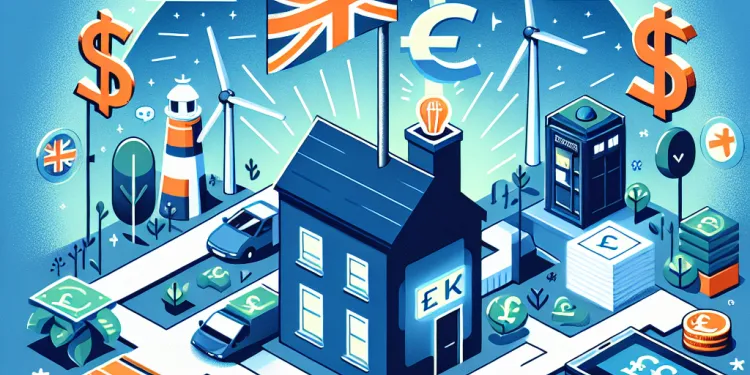
Find Help
More Items From Ergsy search
-
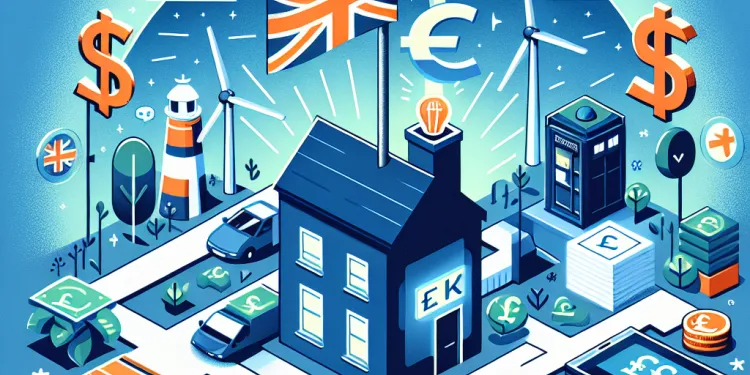
Can I still save money by switching suppliers if the price cap is in place?
Relevance: 100%
-

Can energy suppliers charge less than the price cap?
Relevance: 67%
-

What is the Energy Price Cap in the UK?
Relevance: 60%
-
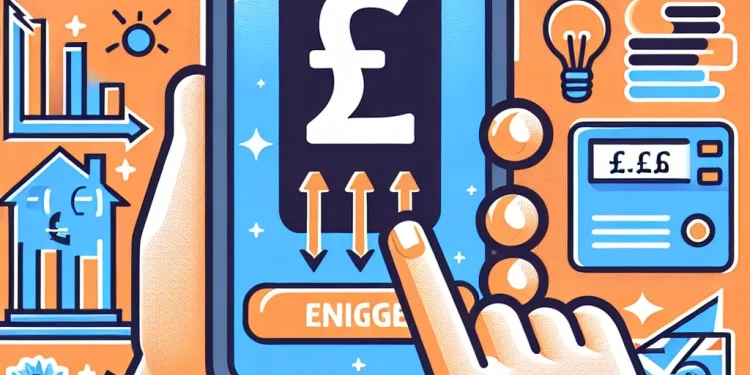
What happens if my energy supplier charges above the price cap?
Relevance: 60%
-

What is the UK's energy price cap?
Relevance: 60%
-

What is the energy price cap?
Relevance: 59%
-
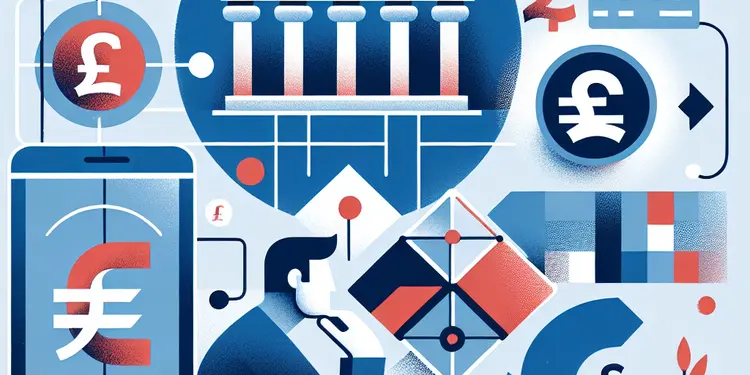
Can I save money by switching my bank?
Relevance: 56%
-
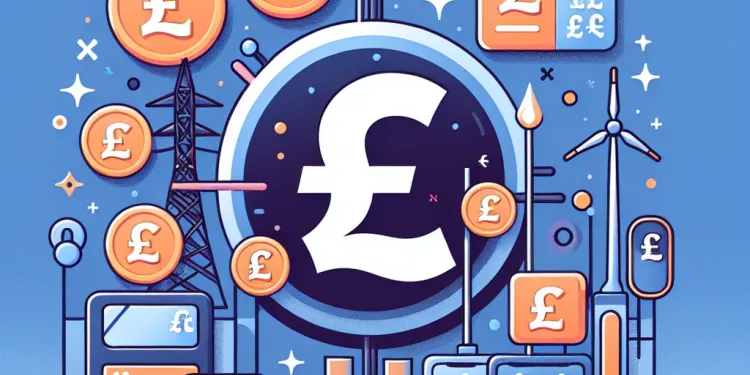
Why was the energy price cap introduced?
Relevance: 56%
-

Is the energy price cap the same for everyone?
Relevance: 55%
-

Can I save money by switching my bank?
Relevance: 55%
-

How does the energy price cap affect my energy bills?
Relevance: 55%
-

Can I save money by switching my bank?
Relevance: 54%
-

How does the energy price cap affect green energy tariffs?
Relevance: 54%
-

Can the energy price cap go down as well as up?
Relevance: 54%
-

Where can I find more information about the energy price cap?
Relevance: 53%
-

Does the energy price cap apply to all energy tariffs?
Relevance: 53%
-

Is the energy price cap being reviewed due to market changes?
Relevance: 52%
-

When was the energy price cap introduced?
Relevance: 51%
-

How is the energy price cap calculated?
Relevance: 51%
-

Does the energy price cap guarantee my total bill?
Relevance: 51%
-

Does the energy price cap apply to prepayment meters?
Relevance: 49%
-
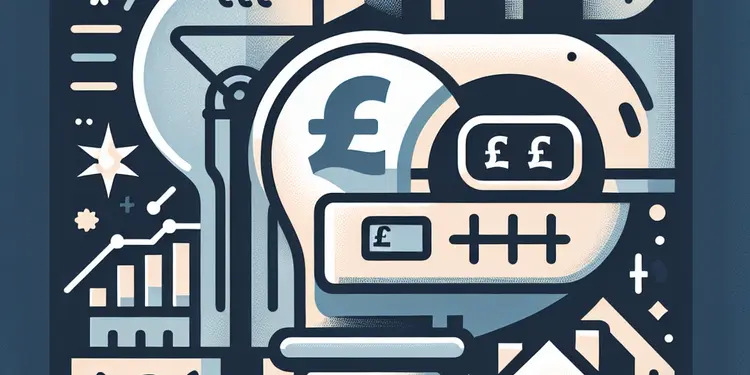
Are energy prices regulated in the UK?
Relevance: 48%
-
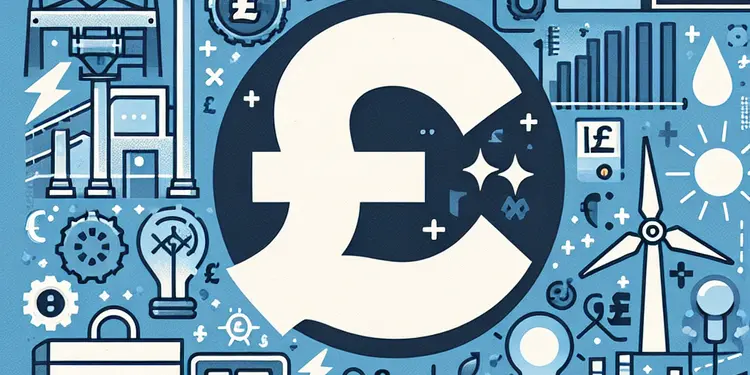
How often can I switch energy suppliers?
Relevance: 48%
-

Will my energy supply be interrupted if I switch suppliers?
Relevance: 48%
-
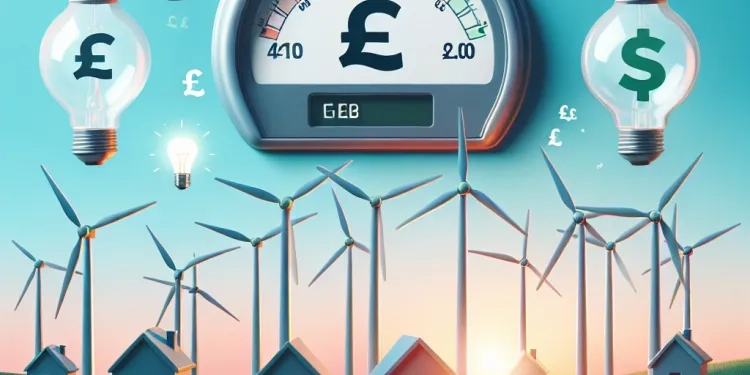
How often is the energy price cap reviewed?
Relevance: 47%
-

What factors influence changes to the energy price cap?
Relevance: 47%
-

What documents do I need to switch energy suppliers?
Relevance: 46%
-
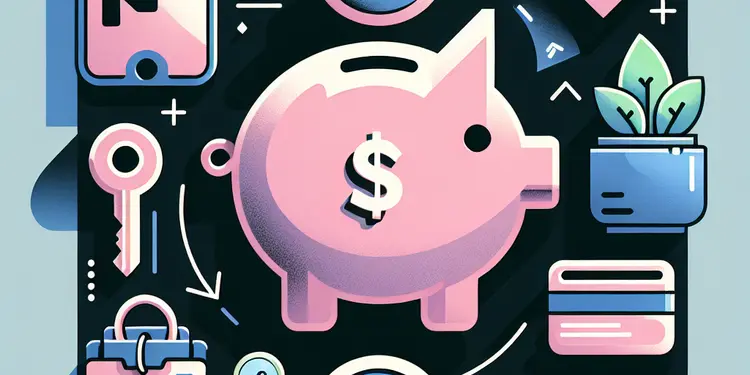
What should I consider when switching banks to save money?
Relevance: 46%
-
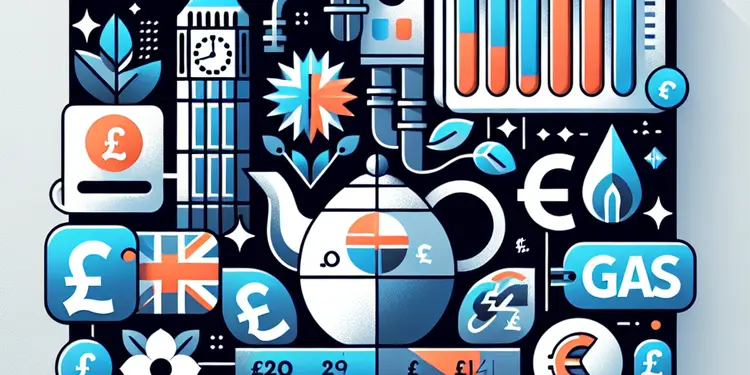
How can I compare prices among different energy suppliers?
Relevance: 45%
-

What should I consider when switching banks to save money?
Relevance: 44%
-
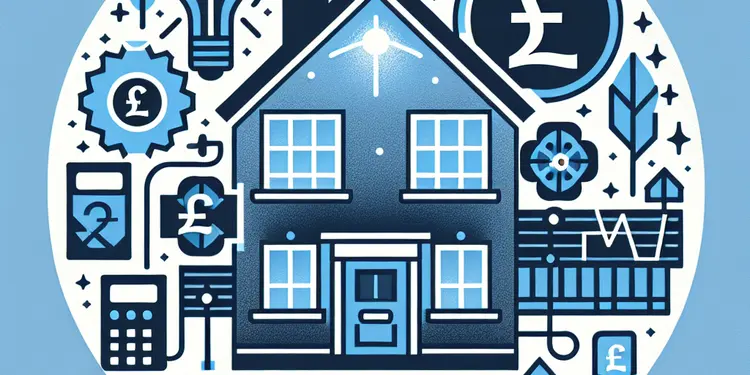
Can I switch energy suppliers if I’m renting?
Relevance: 44%
-

Do energy suppliers offer discounts on electricity prices?
Relevance: 43%
-
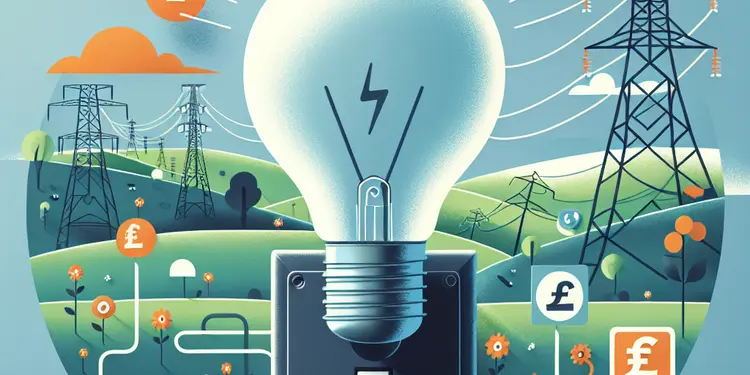
What should consumers consider when switching electricity suppliers?
Relevance: 41%
-

How long does it take to switch energy suppliers?
Relevance: 41%
-

Can I receive the Warm Home Discount if I switch suppliers?
Relevance: 41%
-
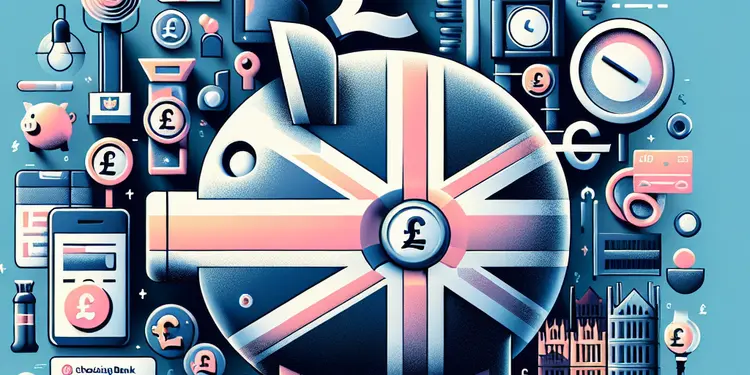
Should I switch my savings account, checking account, or both?
Relevance: 40%
-

Should I switch my savings account, checking account, or both?
Relevance: 38%
-

Who sets the energy price cap?
Relevance: 38%
-

How can I choose the right energy supplier?
Relevance: 37%
-
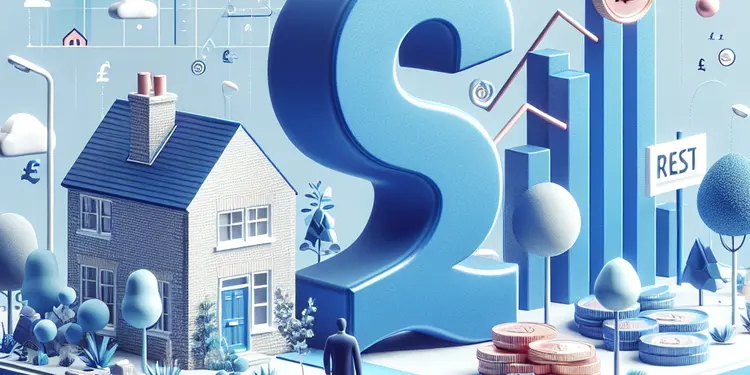
How do better interest rates help me save money?
Relevance: 36%
Understanding the Energy Price Cap
The energy price cap is a regulation set by the UK government through Ofgem, the energy regulator, to protect consumers from excessively high energy charges. It sets a maximum price that energy suppliers can charge per unit of gas and electricity, as well as the maximum daily standing charge. The price cap is reviewed twice a year, and its goal is to ensure fair energy pricing while allowing suppliers to cover the necessary costs and make a reasonable profit.
Impact of the Price Cap on Switching Suppliers
When the price cap is in place, it might seem as though switching suppliers may not yield any cost benefits, as suppliers cannot charge above the cap for the standard variable tariffs. However, there are still potential savings to be found by exploring different energy plans and suppliers. The price cap only applies to the standard variable tariffs, often not the most competitive option available. By switching to a fixed-rate tariff or a tariff with additional discounts or benefits, consumers can potentially save money even with the cap in effect.
Exploring Fixed-Rate Tariffs for Savings
Fixed-rate tariffs often provide a lower per-unit cost compared to the capped variable rates, securing energy prices for the duration of the contract. This means even if market prices rise, your rates will stay the same, potentially offering significant savings, especially in times of fluctuating wholesale energy prices. By comparing available fixed-rate deals, consumers can lock in a lower rate and avoid any unexpected increases in their energy bills within the contract period.
Variable Tariffs vs. Standard Tariffs
While the price cap ensures standard variable tariffs remain relatively affordable, variable tariffs from different suppliers may still vary in pricing below the cap. Some suppliers might offer competitive rates due to their purchasing strategies or lesser operational costs. Exploring these options could provide a more economical rate compared to the capped prices, leading to savings.
Other Benefits of Switching Suppliers
Apart from potential cost savings, switching suppliers can come with other advantages. Many energy providers offer incentives such as cashback offers, loyalty rewards, or green energy options that may not only reduce the overall cost but also align with personal values. By taking advantage of these benefits, consumers can get more value from their energy plans.
Conclusion
Even with the energy price cap in place, consumers can still find ways to save money by switching suppliers. By exploring different tariffs, particularly fixed-rate options, and considering the additional benefits that suppliers offer, individuals can reduce their energy costs while maintaining the same level of consumption. It is always advisable to conduct thorough research and compare the options available in the market to make informed decisions that best suit your financial and personal needs.
Understanding the Energy Price Cap
The energy price cap is a rule made by the UK government. It is there to stop energy companies from charging too much money. It sets the highest cost that energy companies can ask for gas and electricity. This cap is checked two times a year. It makes sure prices are fair while letting companies make some profit.
Impact of the Price Cap on Switching Suppliers
With the price cap, you might think changing energy companies won't save money. But, you can still find good deals by looking at different plans. The cap only covers standard plans, which might not be the best deal. By switching to a fixed-rate plan or one with discounts, you might save money, even with the cap.
Exploring Fixed-Rate Tariffs for Savings
Fixed-rate plans can cost less than capped rates and keep prices the same for the whole deal. This means if prices go up, you pay the same, which can save money. By looking at different fixed-rate deals, you can keep rates low and avoid surprises in your bills.
Variable Tariffs vs. Standard Tariffs
The cap keeps standard plans affordable, but variable plans from different companies might be cheaper. Some companies may have better rates because they manage costs well. Checking these plans might help you pay less than the capped rates.
Other Benefits of Switching Suppliers
Changing suppliers can have other perks. Some companies give things like cashback, rewards, or green energy options. These perks can save you money and match your personal values. By using these perks, you get more from your plan.
Conclusion
Even with the price cap, you can save money by changing suppliers. Look at different plans, especially fixed-rate ones, and think about extra perks. This way, you can cut down on costs and keep using the same amount of energy. Always research and compare plans to find what's best for your budget and needs.
Frequently Asked Questions
What is the energy price cap?
The energy price cap is a limit set by the regulator on the maximum price energy suppliers can charge per unit of gas and electricity to customers on default standard variable tariffs.
How does the price cap affect my energy bills?
The price cap sets a maximum charge per unit of energy, meaning it limits the amount you pay if you're on a default tariff, but your bills will still vary based on your actual energy usage.
Can switching suppliers help me save money under the price cap?
Yes, switching suppliers can still help you save money, especially if you find a fixed tariff deal that offers a lower rate than the current price cap level.
What is a fixed tariff?
A fixed tariff offers a set rate per unit of energy for a specific period, protecting you from price changes during that time.
Is it better to switch to a fixed tariff during a price cap?
It depends on the market and future price forecasts. Fixed tariffs can provide stability, but you should compare options to ensure savings.
Are there fees for switching energy suppliers?
Some suppliers may charge exit fees if you're leaving a fixed-term contract early, but switching from a standard variable tariff usually has no fees.
How do I compare energy tariffs for better deals?
You can compare tariffs using online comparison tools, checking unit prices and standing charges, and evaluating different contract terms to find a suitable deal.
What factors besides price should I consider when switching suppliers?
Consider customer service ratings, contract terms, exit fees, and any additional services or green energy options the supplier offers.
How often can I switch energy suppliers?
You can switch suppliers as often as you like, but be mindful of any contract terms or exit fees that might apply.
What are standing charges?
Standing charges are fixed daily amounts you pay for being connected to the energy supply, separate from the cost of the energy you consume.
Can I switch energy suppliers if I am in debt with my current supplier?
If you owe less than £500 and agree to repay, you can switch suppliers. If you owe more, you may need to repay the debt first or explore other options like a repayment plan.
Does the price cap apply to all energy tariffs?
The price cap primarily applies to default tariffs, not fixed tariffs. Fixed tariffs may still offer competitive rates below the cap.
What is a default standard variable tariff?
A default standard variable tariff is the basic rate customers pay if they do not choose a specific tariff with their supplier. It's often more expensive than fixed tariffs.
Can all households switch energy suppliers?
Most households can switch, except those with prepayment meters or specific terms that might restrict options. Check with your current supplier if unsure.
How does the switching process work?
Switching involves choosing a new supplier, agreeing to a contract, and your new supplier managing the changeover without interrupting your supply.
Will I experience a power loss if I switch suppliers?
No, switching suppliers will not cause any disruption to your energy supply.
How long does it take to switch energy suppliers?
The switching process typically takes about 21 days, including a 14-day cooling off period where you can change your mind.
Should I switching energy suppliers now or wait?
It's a personal decision based on current market rates and your financial situation. Monitor market trends and compare offers to make the best choice.
Will I save money by just staying on the price-capped tariff?
While price-capped tariffs ensure a maximum rate, you might save more by switching to a competitive fixed rate tariff, depending on market conditions.
Are green energy tariffs more expensive?
Not necessarily. Many suppliers offer competitive green tariffs that can be comparable in price to standard tariffs. It's worth comparing if you value renewable energy.
What is the energy price cap?
The energy price cap is a rule that decides the highest price that can be charged for gas and electricity. This helps protect people from very high bills.
Here are some tools that can help you understand more about energy prices:
- Use price comparison websites: These websites help you find the cheapest energy companies.
- Ask someone for help: You can talk to a family member or a friend if you find this topic hard to understand.
- Look for videos online: There are videos that explain energy prices in a simple way.
The energy price cap is a rule. It stops energy companies from charging too much money. This rule sets the highest price they can ask for each unit of gas and electricity. It helps people with a certain type of energy plan, called a default standard variable tariff.
How does the price cap affect my energy bills?
The price cap is a limit on how much you pay for energy. It helps keep your bills from getting too high. It tells energy companies the most they can charge you for each unit of energy you use.
This does not mean your bill will be the same each time. If you use more energy, your bill can still go up. The price cap helps make sure you pay a fair price.
Would you like help to understand your energy bills? You can ask a friend or family member to go through your bill with you. You can also use apps or tools that make bills easier to read.
The price cap is like a lid on how much energy can cost. It means there's a top limit to what you pay if you're on a basic plan. But remember, your bills can still change depending on how much energy you use at home.
Can changing suppliers help me save money with the price limit?
Switching suppliers means changing the company that gives you a service, like energy or internet. The price cap is a limit on how much companies can charge. Changing suppliers might help you find cheaper deals.
Here are some tips:
- Use comparison websites to see different prices.
- Ask someone you trust for help if you're unsure.
- Look for special offers from new suppliers.
Remember, changing suppliers can help you spend less money.
Yes, changing who you pay for your energy can help you save money. Look for deals where the price stays the same and costs less than what you pay now.
What is a fixed tariff?
A fixed tariff is when the price you pay for gas and electricity stays the same for a set time. This could be for a year or more. It means your bills will not change even if energy prices go up.
Here are some tips to understand better:
- Think of it like a promise that your price will not change.
- Use a calendar to remember when the fixed tariff ends.
- Ask someone you trust to explain it again if you need help.
A fixed tariff means you pay the same price for each unit of energy for a certain time. This way, the cost won't go up or down during that time.
Should I choose a fixed price plan when prices are high?
When prices go up, should you pick a deal where the price stays the same? A fixed price plan means the cost won't change for a while. It can help you know what you will pay each month.
If you are not sure what to do, ask someone for help, like a family member or a friend. You can also use a calculator to see what you might pay with different plans.
Finding helpers like online tools can make this easier. They can show you how much things might cost.
Think about how much energy costs now and in the future. Fixed prices stay the same for a while, which can be good because you know what to expect. But make sure to look at different options to find the best price.
Here are some helpful tools and tips:
- Ask someone you trust to help compare prices.
- Use picture charts to understand price differences.
- Look online for simple price comparison websites.
Do you have to pay to change energy companies?
If you want to change your energy company, you might need to pay a fee. You can ask your current company if there is a fee for leaving. Make sure to read any letters or bills they send you. If you need help, you can ask a friend or family member to explain it to you.
Some companies might ask you to pay a fee if you stop a contract early. But if you are changing from a normal plan, you usually do not have to pay anything.
How can I find the best energy prices?
You can use online tools to compare prices. Look at the unit prices and any extra charges. Check different contract terms to find the best deal for you.
What things should I think about when changing suppliers, apart from price?
Here are some things to think about:
- Quality: Is the product or service good?
- Delivery: Do they deliver on time?
- Support: Is their customer service helpful?
- Reputation: Do other people say good things about them?
You can try using tools like graphic organizers to help compare suppliers or ask for help from a friend or family member.
Think about these things:
- How good is their customer service? Do people like it?
- What are the rules in the contract?
- Do they charge extra money if you leave early?
- Do they have other services or green energy?
To help you understand better, try these tools:
- Use pictures or icons to show ideas.
- Highlight important words in a bright color.
- Ask someone you trust to explain if you need help.
How often can I change my energy supplier?
You can change your energy supplier whenever you want.
It is good to check the rules of your current plan. Some plans may have fees if you change early.
Tools like comparison websites can help you find new suppliers easily.
You can change your supplier whenever you want. But check if there are any rules or extra costs if you leave a contract early.
What are standing charges?
Standing charges are the money you pay every day for things like gas and electricity, even if you don’t use any. It's like a daily fee to keep these services ready for you.
Here are some tips to help understand:
- Think of it like a phone line. You pay to keep the line open, even if you don't call anyone.
- Use tools like pictures or charts to see how it works. They can make it easier to understand.
Standing charges are money you pay every day. You pay this to be connected to gas or electricity. This cost is separate from the energy you use.
Can I change energy companies if I owe money?
If you owe money to your energy company, you might still be able to change to a new one. Here are some tips:
- Check how much money you owe.
- Talk to your energy company. They might help you make a plan to pay what you owe.
- If you owe money for less than 28 days, you can switch.
- If you owe money for more than 28 days, you need to pay it off first.
Ask someone you trust, like a friend or family member, to help you. You can also use a calculator or ask for help from a support service to plan your payments.
If you owe less than £500 and promise to pay it back, you can change to a different supplier. If you owe more than £500, you might need to pay the debt first or find other ways to pay, like a repayment plan.
Does the price cap apply to all energy tariffs?
The 'price cap' is the most money you can be charged for energy. This rule helps to stop bills from getting too high. But, not all energy plans have this rule. It only works with some plans. If you're unsure, ask for help or look at your plan.
The price cap mainly affects default tariffs. It does not usually affect fixed tariffs. Fixed tariffs can still have good prices that are lower than the cap.
What is a default standard variable tariff?
A "default standard variable tariff" is a type of energy plan. It's the plan you get if you don't choose another one. The price can go up or down.
If you have trouble reading, you can ask someone you trust to help explain it. You can also use reading tools that read the text out loud.
A default standard variable tariff is the basic price you pay for energy if you don't pick a special deal with your energy company. It is usually more expensive than choosing a fixed price.
Can everyone change their energy company?
Yes, most people can change their energy company to try and save money.
Some people might not be able to switch. This is usually if:
- They owe money to their current energy company.
- They are in a long contract that has not ended yet.
If you are not sure, you can:
- Ask someone for help, like a friend or family member.
- Use websites that compare energy companies.
- Call your energy company and ask them.
Changing energy companies can sometimes help you pay less for your energy.
Most homes can change their energy supplier. But, some can't if they have special meters that need money loaded first or special rules in their contract.
If you're not sure, ask your energy company to help plan your next steps. They can explain your options and what you can do next.
How does switching work?
Switching means changing from one thing to another.
Here is how it works:
- You decide you want to change.
- You find a new one that you like.
- You tell the old one you want to leave.
- The new one helps you join them.
- You start using the new one.
Here are some tips to help:
- Ask someone you trust to explain it to you.
- Use pictures or diagrams to see the steps.
- Take your time and go slow.
- Make sure you understand each step before moving to the next.
Switching means picking a new supplier. You say yes to a new deal with them. Your new supplier will handle the switch. You won't lose your supplies during this change.
Will I lose power if I change to a new supplier?
If you change the company that supplies your power, don't worry. You will not lose your electricity.
Here are some tips to help:
- Ask someone you trust if you need help.
- Write down questions and ask your supplier for answers.
- Use pictures or videos to understand better.
No, changing who gives you energy will not stop your power.
How long does it take to change energy suppliers?
Changing who you get your energy from might take about 2 to 3 weeks.
Here are some things that can help:
- Ask someone you trust to help you with the steps.
- Use a calendar to mark important dates.
- Keep all the papers or emails about your energy in one place.
- If you need help, you can call your new energy company.
Changing to a new service takes about 21 days. This includes 14 days where you can decide to change your mind.
If you need help with reading, you can try using text-to-speech tools. They read the words out loud to you. Or, you can ask someone you trust to help explain it to you.
Should I change my energy company now or wait?
Choosing when to get a loan is up to you. Think about money rules right now and how much money you have. Watch what is happening with money and look at different offers to pick the best one for you.
Here are some ways to help: Use picture charts for market trends. Ask someone you trust for help. Use apps or tools that explain money simply.
Will I save money if I stay with the price-capped plan?
If you stay on the price-capped plan, your costs might be lower. The price-capped plan stops prices from going too high.
Tools like budget apps can help you keep track of your money.
Ask someone you trust for help if you are unsure.
Price caps mean there is a limit on how much you pay. But you might pay even less if you switch to a fixed rate plan with another company, depending on the market.
Do green energy plans cost more money?
No, not always. Many energy companies have green plans that cost about the same as regular plans. It's a good idea to check if you like using renewable energy.
Useful Links
Have you found an error, or do you have a link or some information you would like to share? Please let us know using the form below.
-->
This website offers general information and is not a substitute for professional advice.
Always seek guidance from qualified professionals.
If you have any medical concerns or need urgent help, contact a healthcare professional or emergency services immediately.
Some of this content was generated with AI assistance. We’ve done our best to keep it accurate, helpful, and human-friendly.
- Ergsy carfully checks the information in the videos we provide here.
- Videos shown by Youtube after a video has completed, have NOT been reviewed by ERGSY.
- To view, click the arrow in centre of video.
- Most of the videos you find here will have subtitles and/or closed captions available.
- You may need to turn these on, and choose your preferred language.
- Go to the video you'd like to watch.
- If closed captions (CC) are available, settings will be visible on the bottom right of the video player.
- To turn on Captions, click settings .
- To turn off Captions, click settings again.
More Items From Ergsy search
-

Can I still save money by switching suppliers if the price cap is in place?
Relevance: 100%
-

Can energy suppliers charge less than the price cap?
Relevance: 67%
-

What is the Energy Price Cap in the UK?
Relevance: 60%
-

What happens if my energy supplier charges above the price cap?
Relevance: 60%
-

What is the UK's energy price cap?
Relevance: 60%
-

What is the energy price cap?
Relevance: 59%
-

Can I save money by switching my bank?
Relevance: 56%
-

Why was the energy price cap introduced?
Relevance: 56%
-

Is the energy price cap the same for everyone?
Relevance: 55%
-

Can I save money by switching my bank?
Relevance: 55%
-

How does the energy price cap affect my energy bills?
Relevance: 55%
-

Can I save money by switching my bank?
Relevance: 54%
-

How does the energy price cap affect green energy tariffs?
Relevance: 54%
-

Can the energy price cap go down as well as up?
Relevance: 54%
-

Where can I find more information about the energy price cap?
Relevance: 53%
-

Does the energy price cap apply to all energy tariffs?
Relevance: 53%
-

Is the energy price cap being reviewed due to market changes?
Relevance: 52%
-

When was the energy price cap introduced?
Relevance: 51%
-

How is the energy price cap calculated?
Relevance: 51%
-

Does the energy price cap guarantee my total bill?
Relevance: 51%
-

Does the energy price cap apply to prepayment meters?
Relevance: 49%
-

Are energy prices regulated in the UK?
Relevance: 48%
-

How often can I switch energy suppliers?
Relevance: 48%
-

Will my energy supply be interrupted if I switch suppliers?
Relevance: 48%
-

How often is the energy price cap reviewed?
Relevance: 47%
-

What factors influence changes to the energy price cap?
Relevance: 47%
-

What documents do I need to switch energy suppliers?
Relevance: 46%
-

What should I consider when switching banks to save money?
Relevance: 46%
-

How can I compare prices among different energy suppliers?
Relevance: 45%
-

What should I consider when switching banks to save money?
Relevance: 44%
-

Can I switch energy suppliers if I’m renting?
Relevance: 44%
-

Do energy suppliers offer discounts on electricity prices?
Relevance: 43%
-

What should consumers consider when switching electricity suppliers?
Relevance: 41%
-

How long does it take to switch energy suppliers?
Relevance: 41%
-

Can I receive the Warm Home Discount if I switch suppliers?
Relevance: 41%
-

Should I switch my savings account, checking account, or both?
Relevance: 40%
-

Should I switch my savings account, checking account, or both?
Relevance: 38%
-

Who sets the energy price cap?
Relevance: 38%
-

How can I choose the right energy supplier?
Relevance: 37%
-

How do better interest rates help me save money?
Relevance: 36%


